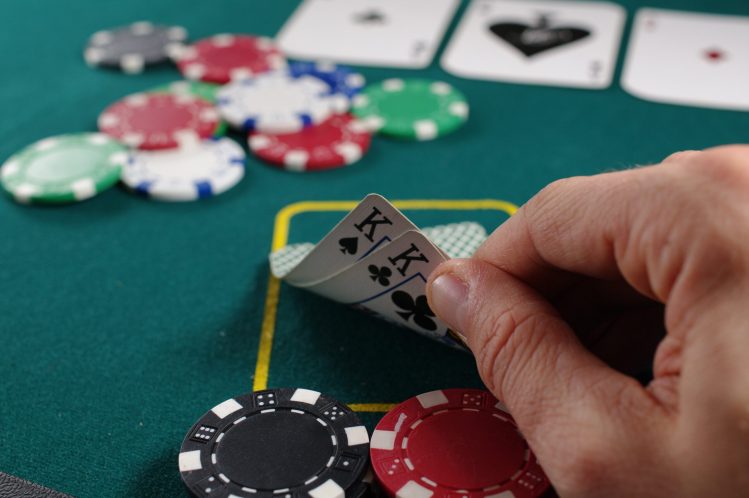Even a few years ago people couldn’t imagine that they would be able to visit a gambling establishment. Yet, today it’s possible to play online Roulette here or other table games, such as baccarat or poker. But what if you’ve decided to visit a real casino? Then you should follow these etiquette rules.
3 Main Rules of Poker Etiquette

3 Main Rules of Poker Etiquette
Even a few years ago people couldn’t imagine that they would be able to visit a gambling establishment. Yet, today it’s possible to play online Roulette here or other table games, such as baccarat or poker. But what if you’ve decided to visit a real casino? Then you should follow these etiquette rules. There are unspoken rules of conduct that most professionals try to follow. And that you need to know if you want to be treated with respect at the table.
Time Is Money
The obvious rule is not to waste time unnecessarily. Players are accustomed to the fact that on the Internet, deals go by quickly. And many are annoyed when someone is wasting time. Of course, there are times when you really need to think through a difficult situation. But even then do not forget that others are waiting for your move and they want to continue the game as soon as possible.
According to casino rules, if a player takes too long to act, you can request a timer to be applied. Then the tournament manager will give a minute for reflection. But in poker circles it is considered unethical to use this right immediately, if the opponent is clearly having a difficult decision. Especially if there is a big pot at stake.
Time Is Money – Real-Life Scenario
You’re playing a $1/$2 cash game at a local casino. A new player in seat 5 takes over two minutes on every turn, even for simple folds. The table starts to get frustrated, and one player eventually calls the floor to “put the clock” on him. Everyone notices the tension rise, and the slow player becomes a target for passive-aggressive comments.
Lesson: Even if you’re new, try to act within a reasonable time to keep the game flowing. If you need to think deeply, use your time bank wisely and acknowledge the table’s patience.
The Subtleties of Trash Talk
Talking is a powerful tool, which poker pros can use to elicit useful information from their opponents. That’s why beginners are advised to keep their mouths shut. You have every right not to answer when someone asks you something during a hand. It won’t even be considered impolite. The key is to remain respectful and avoid giving away information unintentionally.
With chatter is a different matter. For example, Daniel Negreanu is an example of positive communication. He is always friendly, loves to joke and chat about distracted topics. And, at the same time, closely follows the players, analyzes their behavior, assessing the strength of their hands.
Real-Life Scenario
At a mid-stakes tournament, a chatty pro across the table keeps joking and asking you casual questions during your big hand. You respond nervously, and afterward, you realize you gave away a lot about your strength just by engaging. Meanwhile, another player stays silent, calmly making their decisions without interacting.
Lesson: You’re never required to answer table talk during a hand. Stay composed and protect your information, especially if you’re not used to verbal mind games.
Slowroll
Slowroll is the deliberate stalling of time in a situation where you have a hand you can’t lose with. It is considered one of the dirtiest tricks in poker. It’s as if you’re giving your opponent false hope, so that you can then knock him out with a nats show.
An example of this is Mikel Habb’s behavior in the hand against Samantha Abernathy. In the 2016 Aussie Millions Main Event, Habb held pocket kings and took an extended time to call Abernathy’s all-in with pocket sixes, an act widely regarded as a slow roll. Abernathy ultimately won the hand when a six appeared on the river, leading to Habb’s elimination from the tournament.
Real-Life Scenario
In a home game, you go all-in on the river, and your opponent with the obvious nuts (the unbeatable hand) pauses dramatically, sighing as if unsure, before finally calling and revealing they were always ahead. The table groans — it’s considered bad manners because they knew they were winning but delayed just to needle you.
Lesson: If you know you’re calling with the best hand, don’t act like you’re uncertain. Slowrolling is seen as disrespectful and can damage your reputation at the table.
Conclusion
Mastering poker etiquette is just as important as learning the rules of the game. By acting promptly, managing your table talk wisely, and avoiding disrespectful moves like slowrolling, you show respect for both the game and your fellow players. Whether you’re at a casino or a home game, good etiquette not only earns you respect but also creates a more enjoyable experience for everyone at the table. Play smart, play fair, and you’ll always be welcome in any poker room.








